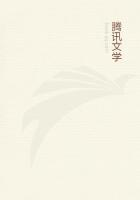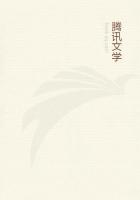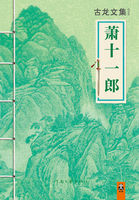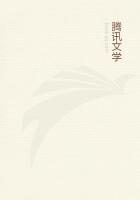Let us begin, inoffensively, with sheep. The sheep is a beast with which we are all familiar, being much used in religious imagery; the common stock of painters; a staple article of diet; one of our main sources of clothing; and an everyday symbol of bashfulness and stupidity.
In some grazing regions the sheep is an object of terror, destroying grass, bush and forest by omnipresent nibbling; on the great plains, sheep-keeping frequently results in insanity, owing to the loneliness of the shepherd, and the monotonous appearance and behavior of the sheep.
By the poet, young sheep are preferred, the lamb gambolling gaily; unless it be in hymns, where "all we like sheep" are repeatedly described, and much stress is laid upon the straying propensities of the animal.
To the scientific mind there is special interest in the sequacity of sheep, their habit of following one another with automatic imitation.
This instinct, we are told, has been developed by ages of wild crowded racing on narrow ledges, along precipices, chasms, around sudden spurs and corners, only the leader seeing when, where and how to jump. If those behind jumped exactly as he did, they lived. If they stopped to exercise independent judgment, they were pushed off and perished; they and their judgment with them.
All these things, and many that are similar, occur to us when we think of sheep. They are also ewes and rams. Yes, truly; but what of it?
All that has been said was said of sheep, _genus ovis,_ that bland beast, compound of mutton, wool, and foolishness. so widely known. If we think of the sheep-dog (and dog-ess), the shepherd (and shepherd-ess), of the ferocious sheep-eating bird of New Zealand, the Kea (and Kea-ess), all these herd, guard, or kill the sheep, both rams and ewes alike. In regard to mutton, to wool, to general character, we think only of their sheepishness, not at all of their ramishness or eweishness. That which is ovine or bovine, canine, feline or equine, is easily recognized as distinguishing that particular species of animal, and has no relation whatever to the sex thereof.
Returning to our muttons, let us consider the ram, and wherein his character differs from the sheep. We find he has a more quarrelsome disposition. He paws the earth and makes a noise. He has a tendency to butt. So has a goat--Mr. Goat. So has Mr. Buffalo, and Mr. Moose, and Mr. Antelope. This tendency to plunge head foremost at an adversary--and to find any other gentleman an adversary on sight--evidently does not pertain to sheep, to _genus ovis;_ but to any male creature with horns.
As "function comes before organ," we may even give a reminiscent glance down the long path of evolution, and see how the mere act of butting--passionately and perpetually repeated--born of the beliggerent spirit of the male--produced horns!
The ewe, on the other hand, exhibits love and care for her little ones, gives them milk and tries to guard them. But so does a goat--Mrs. Goat.
So does Mrs. Buffalo and the rest. Evidently this mother instinct is no peculiarity of _genus ovis,_ but of any female creature.
Even the bird, though not a mammal, shows the same mother-love and mother-care, while the father bird, though not a butter, fights with beak and wing and spur. His competition is more effective through display. The wish to please, the need to please, the overmastering necessity upon him that he secure the favor of the female, has made the male bird blossom like a butterfly. He blazes in gorgeous plumage, rears haughty crests and combs, shows drooping wattles and dangling blobs such as the turkey-cock affords; long splendid feathers for pure ornament appear upon him; what in her is a mere tail-effect becomes in him a mass of glittering drapery.
Partridge-cock, farmyard-cock, peacock, from sparrow to ostrich, observe his mien! To strut and languish; to exhibit every beauteous lure; to sacrifice ease, comfort, speed, everything--to beauty--for her sake--this is the nature of the he-bird of any species; the characteristic, not of the turkey, but of the cock! With drumming of loud wings, with crow and quack and bursts of glorious song, he woos his mate; displays his splendors before her; fights fiercely with his rivals. To butt--to strut--to make a noise--all for love's sake; these acts are common to the male.
We may now generalize and clearly state: That is masculine which belongs to the male--to any or all males, irrespective of species. That is feminine which belongs to the female, to any or all females, irrespective of species. That is ovine, bovine, feline, canine, equine or asinine which belongs to that species, irrespective of sex.
In our own species all this is changed. We have been so taken up with the phenomena of masculinity and femininity, that our common humanity has largely escaped notice. We know we are human, naturally, and are very proud of it; but we do not consider in what our humanness consists; nor how men and women may fall short of it, or overstep its bounds, in continual insistence upon their special differences. It is "manly" to do this; it is "womanly" to do that; but what a human being should do under the circumstances is not thought of.
The only time when we do recognize what we call "common humanity" is in extreme cases, matters of life and death; when either man or woman is expected to behave as if they were also human creatures. Since the range of feeling and action proper to humanity, as such, is far wider than that proper to either sex, it seems at first somewhat remarkable that we have given it so little recognition.















